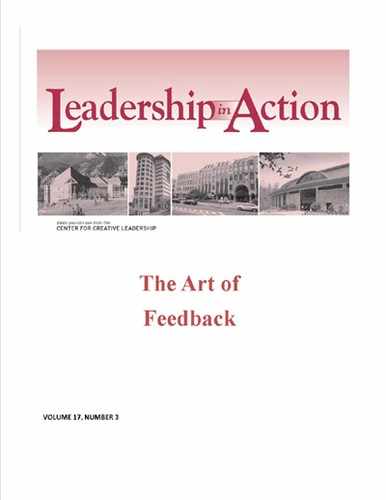Taking Responsibility
“When I walk in that room to give feedback to a manager, I know a lot about that person. I know his or her personal history, from jobs to birth order; I know personality characteristics, based on four different personality instruments; I know how he or she is viewed by bosses, peers, and subordinates; I also know the self-view. In a way, I have in my hands more information about that person than anyone else. Accordingly, there is a tremendous responsibility in this job—responsibility to understand and relate this information in the best possible manner to the participant.”
This account captures the responsibility felt by the specialists. At the same time, it is necessary to recognize that the responsibility for change lies with the participant. The specialist needs to read the participant's emotional state and respond to it in order to create and maintain a climate of openness, safety, and constructiveness. Suggestions and problem solving are often part of the feedback sessions. But it is only the participant who gets to say, “This issue has true meaning for me—I wish I could do it differently.”
Feedback is a blend of action planning, problem solving, and generating alternatives.
